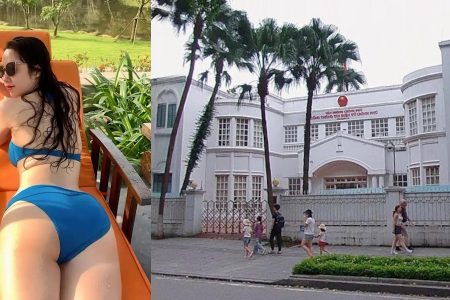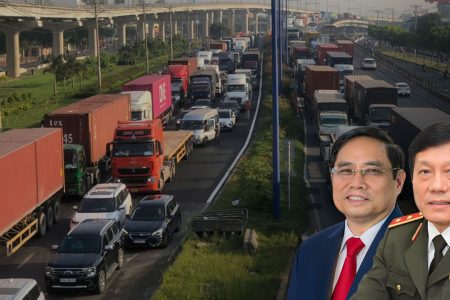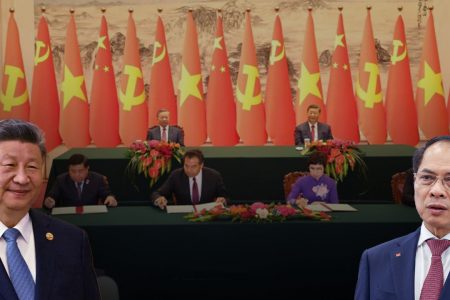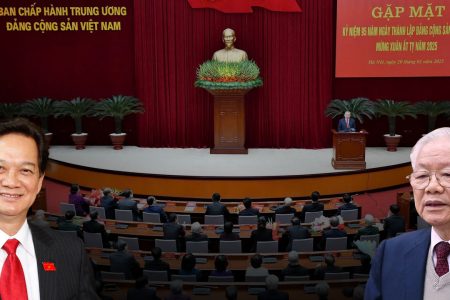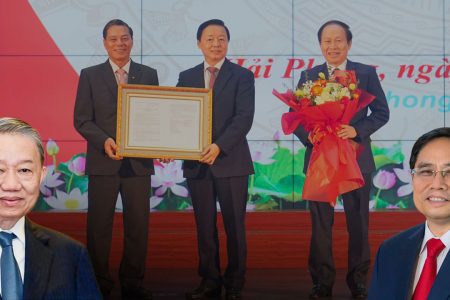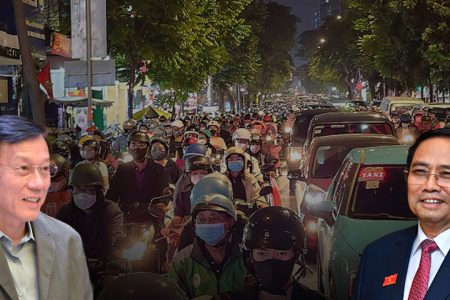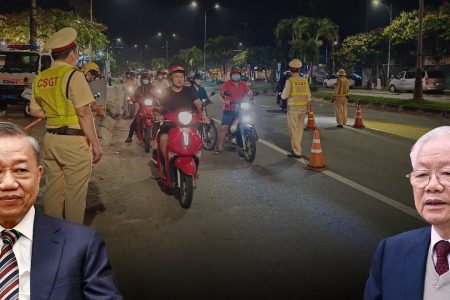
More than a dozen days before the 13th National Congress of the ruling Communist Party of Vietnam (CPV) opened, Vietnam’s Defense Ministry and Ministry of Information and Communications on January 13 strengthened their cooperation with the stated goal of ensuring cyber information security for the congress and important events of the country. Specifically, according to the state-controlled media, the High Command 86 under the Defense Ministry and the Department of Information Security under the Ministry of Information and Communications signed the Regulation on cooperation in cybersecurity information security.
For many years, there has been coordination between High Command 86 and the Department of Information Security, such as sharing information on state-owned websites’ attacks, coordinating in handling, and combating exploited activities in cyberspace to sabotage the Party and State, and protecting the Party’s ideological foundation on cyberspace.
However, according to independent journalist Nguyen Vu Binh, the cooperation signing on January 13 between the two agencies is an upgrade in the state’s cyber information control campaign. He shared with Radio Free Asia via SMS:
“Usually the Defense Ministry does not engage deeply in cyberspace with civilian agencies. They have participated in the fight against peaceful developments. They have their own cyber program which is a military one. So the cooperation with the Ministry of Information and Communication like this is new. Its meaning is to intensify in the fight against peaceful developments.”
At the conference summarizing the press work, publishing the entire army in 2020, implementing the 2021 mission of the General Department of Politics of the People’s Army, Senior Lieutenant General Nguyen Trong Nghia also said that propaganda articles were fighting against the wrong views, hostility, the fight against peaceful developments, the prevention of ‘self-development, self-transformation‘ have been well maintained by the state-controlled press agencies.
On January 12, the Ministry of Information and Communications inaugurated the Center for Dealing with Fake News on an online platform to receive reports and publish information on fake news. The state-controlled media quoted Mr. Luu Dinh Phuc, director of the Department of Radio-Television and Electronic Information, as saying that the Center for Dealing with Fake News was established “to become a center for dealing with fake news with a mission to spread the truth.”
A number of journalists told Radio Free Asia that fake news on cyberspace for many years has become an issue, not only in Vietnam but also by the whole world, However, they did not seem convinced about the function of the Center for Dealing with Fake News with the aim of “spreading the truth” as stated by Mr. Luu Dinh Phuc.

Who defines truth?
Blogger JB Nguyen Huu Vinh thinks that the handling of fake news is legitimate, but it is necessary to understand clearly who defines what is fake news and what is true. He argued:
“I think everything needs its true nature so dealing with fake news is essential. That’s the first thing. The second point is, which information is fake news? By their definition, fake news was not introduced by the Party. Only the Party’s news is the real news. But in reality, what the party gives is fake news.
Thirdly, now that the Vietnamese government introduces a so-called dealing with fake news, I think it is also a tool for them to silence others because we see, for example as recently, some independent journalists and democracy advocates were arrested, they all concluded that they misrepresent and defamed this and that. In fact, when they tell the truth, the authorities consider fake news. When the authorities report fake news, they think it is true. The danger in Vietnam is that they always reverse the concept, fake news, believe it for real.”
Mr. Hung Nguyen, a lecturer in digital journalism at Goldsmiths University, University of London, specializing in verifying information for media channels, including BBC, noted the effectiveness of the Center for Dealing with Fake News under the authority of the Ministry of Information and Communications:
“Is there a government agency involved in that activity? Perhaps the answer is also not sure. Because of the newspapers I follow, I see for example the VNA, it is a state agency, it is also doing it well. It has a number of young and fairly active leaders. They foresaw the problem of fake news, and from the beginning of 2020 they went to Tik Tok, they set up an account called Fact Check VN. That account I followed, saw that they did well and did not see anything they did but the anti-fake page of the Department of Radio and Television was different. So it is also possible that it has an overlap that is not necessary.”
He notes that fake information also comes from individuals at times. In this case, a center for dealing with fake news theoretically has its effect if implemented according to the set objectives. He explained:
“We all know that in the last US presidential election, the false news that was spread from people from Vietnam, not from America. Of course, there are many American words, because it’s an American business. However, there is a group of people in Vietnam who is very passionate about spreading false information. It was not because that they do not know anything since many of them are also famous and have a good education. However, it may be due to their prejudice that they are willing to report information that is in fact inaccurate. Therefore, a center for dealing with fake news also has a different way of doing things, but if there is a coincidence with what news agencies have already done, do we need to add another one that is funded from a state budget for a similar mission?”
Need to verify Verification Agency?
The answer is not necessary, he said, because the Center for Dealing with Fake News has no more functions than what the state-controlled media can do, otherwise, it is also subject to the one-party control of the Ministry of Information and Communication.
“There is a complete risk that the Center for Dealing with Fake News may report news themselves that are not completely objective. That is very clear because all the press agencies in Vietnam are subject to the general control of the state, and it is difficult to report contrary to what they are allowed to. Therefore, not everything they verify and give, we can 100% believe is true, especially what it is directly related to the government, such as public forces security, for example involving ministries and branches.
And it is also a little irony that news agencies themselves sometimes report wrong, sometimes forced to report wrong, sometimes not verified information. For example, when the police say something, in some politically sensitive cases, the press won’t dare to verify anything. Just post what the police give without verifying the information. Therefore, in certain areas, perhaps we must also check other sources as well to verify the testing agencies.”
When browsing the website of the Center for Dealing with Fake News, readers not only see the news that this agency ‘stamp’ as ‘fake news,’ but the center also has a page receiving reports on fake news.
According to journalist and blogger JB Nguyen Huu Vinh, this is also a trick to cause more confusion among netizens.
“In essence, they want to manipulate social networks and tools by which people can speak up. We can understand that according to the regime, false meaning not in accordance with the party. The ‘fake’ does not mean it is not true.”
How to identify fake news?
Journalists commented that identifying fake news is increasingly difficult with the rapid development of social networks, as well as software that can help create fake images or videos.
“The most important thing is probably the source. For example, the source is not necessarily reliable, little heard of, the source was only established about six months ago, the reliability is very little. In Vietnam, certain news, such as political news, the information from the state sources also needs to be verified. Second, when it comes to videos and photos, I have to ask the question is it photoshopped?
Teacher Hung Nguyen shares four factors to help readers identify:
Was it the right location they said or not or was taken to another location and brought to a new location? Video too, now there’s deepfake, people use artificial intelligence to make fake things that are very impressive. All of these are very difficult, and require us to process information more slowly.”
And the last factor that helps readers evaluate information, he emphasizes, is the perception of the author’s goal of the article or information product.
Thoibao.de (Translated)



